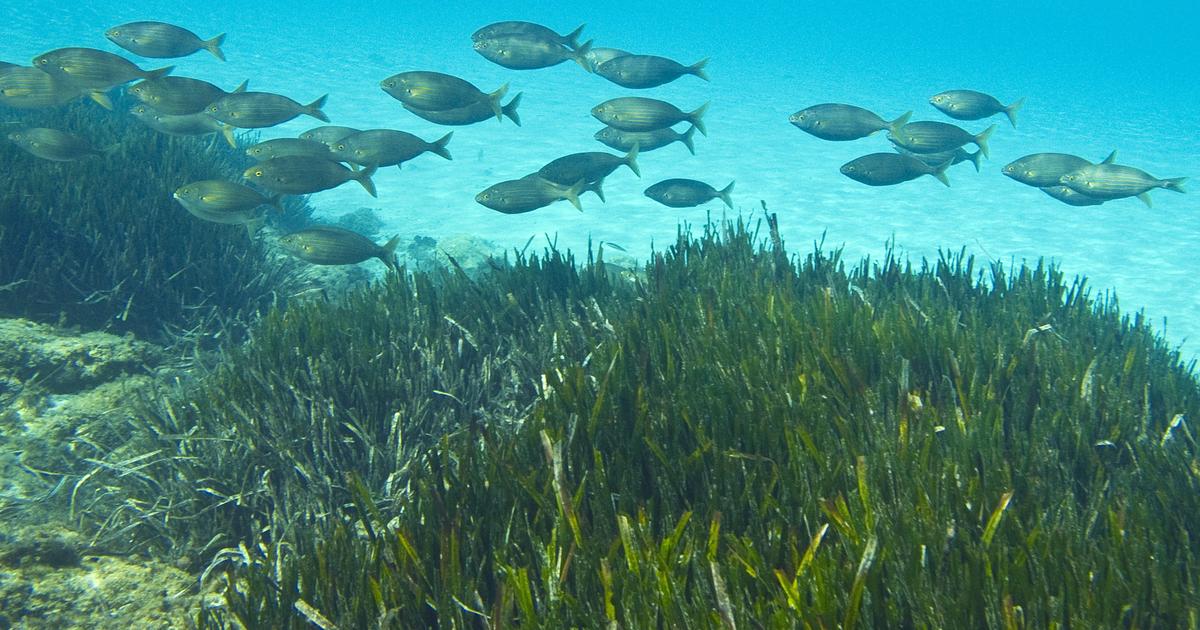Le Figaro Nice
The Mediterranean Sea is not just a wavy turquoise canvas with its few sailboats.
In the middle of this azure blue, darker shades.
Posidonia seagrass beds in the seabed explain these contrasts.
The species is essential for underwater biodiversity and is internationally protected.
In the bay of Cannes, around the islands of Lérins and Saint-Marguerite (Alpes-Maritimes), they are prized, endangered and monitored.
Too many private boats flock together each summer to take advantage of the setting, to make it lose its wild and paradisiacal side.
The municipality of Cannes is aware of this and since David Lisnard has been enthroned within it, he has been concerned about the good health of the waters of the mare nostrum.
The mooring is controlled and away from the areas in which the Posidonia develop in order to further protect them and the underwater fauna.
The installation of an underwater eco-museum with six statutes by Jason deCaires Taylor also serves to accomplish this preservation objective, as does the sanctuarization of a 43-hectare area decided two years ago.
Since 2019, the town hall has even been working to give a second life to the Posidonia meadows.
During annual “slapping” operations, which took place from April 18 to 25 this year, dead plants washed up on the beaches of the Croisette are reintroduced into the sea. To carry out this project, the community is spending nearly 200,000 euros .
An expense justified for a certain ecological interest, according to David Lisnard.
“Protecting this marine environment is not an option but an absolute necessity
,” summarizes the city councilor, also president of the Association of Mayors of France.
The clapping of Posidonia is an innovative, concrete and original illustration of this.”
Read also Opposed to the Canua Island floating island project in the bay of Cannes, David Lisnard relies on Élisabeth Borne
Dropping into an underwater pit
TP Spada is in charge of the manoeuvres.
Posidonia washed up on the beaches of La Croisette during the winter are picked up and dropped off at Port Canto.
A barge picks up these plants on board to transport them a few miles away to drop them as you progress and choose a route.
Nearly 3,000 m3 of Posidonia meadows were thus released about seven kilometers from the coast, south of Saint-Honorat Island.
The place is not chosen at random.
A "grand canyon" is there and the posidonia thus find the seabed.
They seem to be sucked into the depths.
Here, the currents should not bring them back to the beaches.
Even dead, the plant still absorbs carbon dioxide in this underwater pit and helps fight against erosion.
The re-silting operations are thus limited, underlines the town hall.
The method of "clapage" is
"in accordance with the recommendations of the State and respects the marine environment"
, she continues.
Posidonia beds play an important role for life under water by producing oxygen and serving as a refuge for various fish.

